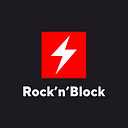5 Trending NFT Marketplace Development Types in 2024
In the world of blockchain and cryptocurrency, Non-Fungible Tokens are having a significant impact, leading to the creation of decentralized marketplaces customised to specific sectors. This article explores five distinct NFT marketplace categories — Gaming, Art and Collectibles, Music, Real Estate, and Virtual Goods and Metaverse — investigating their distinct traits and the fundamental principles of NFT marketplace development.
NFT Marketplaces Variety in a Glance
This part categorizes NFT marketplaces into eight types, offering alternatives for creators, collectors, and companies navigating the expanding NFT ecosystem.
1. General-Purpose NFT Marketplaces
Platforms like OpenSea and Rarible serve as versatile hubs, accommodating a wide range of digital assets, making them ideal entry points to the vast NFT realm.
2. Specialized NFT Marketplaces
Platforms like Audius for music and Decentraland for gaming cater to niche markets, providing exclusive spaces for enthusiasts to trade special digital assets.
3. White-Label NFT Marketplaces
Ideal for businesses, these platforms offer customizable solutions for organizations entering the NFT market, allowing them to shape features according to their specific needs.
4. Decentralized NFT Marketplaces
Platforms like Mintable and SuperRare leverage blockchain decentralization, offering direct peer-to-peer trading experiences without intermediaries.
5. Curated NFT Marketplaces
Platforms like Foundation focus on quality and exclusivity, rigorously selecting artists and content, creating a curated space appealing to collectors seeking high-quality digital assets.
6. Social Token Platforms
Platforms like Rally allow creators to digitize their social capital, enabling influencers and content creators to issue and exchange social tokens, fostering new channels for fan engagement.
7. Hybrid NFT Marketplaces
Platforms like NBA Top Shot merge gaming and collectibles, tokenizing officially licensed digital moments, creating a dynamic and interactive trading environment.
8. Multi-Chain NFT Marketplaces
Platforms like Blur offer interoperability, allowing users to trade NFTs across various blockchain networks, enhancing flexibility in the NFT ecosystem.
For deeper insights read our full guide!
Specialized NFT Marketplaces and Their Common Traits
While these platforms explore particular niches, they share essential features:
1. Blockchain Technology Integration
2. Smart Contracts
3. The Decentralized Nature
Gaming NFT Marketplaces
The convergence of gaming and blockchain has given rise to gaming NFT marketplaces, revolutionizing digital ownership within the gaming industry. Platforms like Decentraland and Axie Infinity exemplify the symbiosis between gaming and NFTs, offering players genuine ownership and control over in-game assets.
Key Specifics
1. Player-Driven Economies
Gaming NFT marketplaces facilitate a decentralized, player-driven economy, empowering players. NFT ownership of in-game assets allows players to experience genuine ownership and control by enabling buying, selling and trading.
2. Interoperability
Players often engage with multiple games, and interoperable NFTs allow seamless transfer and use of assets across different gaming platforms.
Art and Collectibles NFT Marketplaces
The fusion of art, collectibles, and blockchain technology has given rise to art and collectibles NFT marketplaces, transforming the trading and perception of digital creativity. Platforms like OpenSea and Rarible exemplify the synergy between artistic expression and blockchain technology.
Key Specifics
1. Tokenization of Creativity
It allows artists to tokenize their digital creations, transforming them into unique and tradable assets. This process not only secures the ownership of the artwork but also introduces a new dimension to the valuation of digital creativity.
2. Direct Artist-to-Collector Interaction
NFT marketplaces facilitate direct interaction between artists and collectors, eliminating intermediaries and providing creators with more control over their work and revenue streams.
Music NFT Marketplaces
Music NFT marketplaces present a radical shift for musicians by enabling direct engagement with their audience. Platforms like Audius and Mintable empower artists to tokenize their music, creating unique NFTs that grant fans access to exclusive content, concert perks, or even a share in the artist’s royalties.
Key Specifics
1. Direct Artist-to-Fan Transactions
NFT marketplace development in the music industry facilitates direct transactions between artists and fans. Musicians can tokenize their music, allowing fans to purchase unique NFTs that grant access to exclusive content, concert perks, or even a share in the artist’s royalties.
2. Innovative Revenue Streams
Beyond traditional sales and streaming, artists have the opportunity to monetise their work through the sale of limited-edition NFTs, thereby creating a new and sustainable source of income.
Real Estate NFT Marketplaces
Real estate NFT marketplaces use blockchain technology to create tokens representing physical properties, making real estate investments more accessible. Propy is a global real estate marketplace demonstrating how NFT marketplace development principles can be applied to traditional markets.
Key Specifics
1. Fractional Ownership Opportunities
NFTs representing real-world properties can be divided into smaller, tradable shares, enabling investors to participate in the real estate market with smaller capital contributions.
2. Global Accessibility
NFT marketplace development enhances the accessibility of real estate investments for a worldwide demographic. Interested buyers from all over the world can participate in property transactions without the traditional barriers associated with geographical limitations.
Virtual Goods and Metaverse NFT Marketplaces
Virtual goods and metaverse NFT marketplaces are at the forefront, transforming user interactions with virtual environments. Platforms like Cryptovoxels and The Sandbox showcase the transformative power of blockchain technology in creating decentralized and immersive metaverse experiences.
Key Specifics
1. Virtual Goods Tokenization
It involves the tokenization of virtual goods and assets. From virtual clothing and accessories to entire virtual spaces, blockchain technology ensures the authenticity and ownership of these digital assets.
2. Immersive Experiences
Metaverse NFT marketplaces aim to offer users immersive experiences. They provide a platform for trading virtual goods as well as creating and monetising interactive experiences within the digital realm. This expands the concept of digital ownership beyond traditional boundaries.
Summing Up
Whether in gaming, art, music, real estate or the metaverse, NFTs are redefining digital ownership, with NFT marketplace development at the forefront of this transformation. As the NFT landscape evolves, comprehension of the key principles and practices of NFT marketplace development is crucial for creators, developers, and businesses alike, as they navigate the decentralized future of digital assets.
